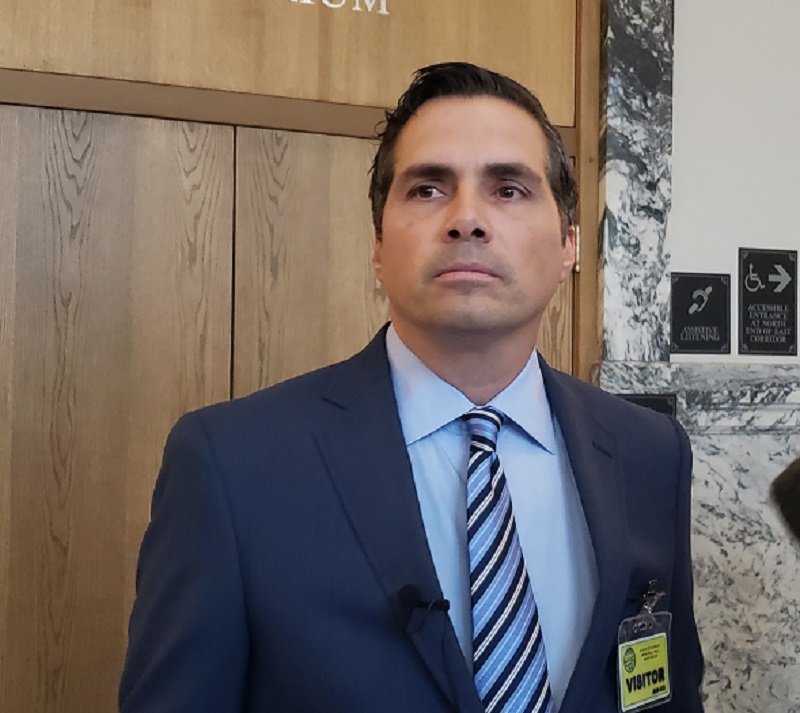Republican gubernatorial candidate Kris Kobach says it’s a “mistake” for the state to appeal a court ruling declaring changes to the workers compensation system unconstitutional.
In an interview this week, the secretary of state said court opinions are stacking up against the 2013 law that critics say limits the amount of money awarded to workers injured in the workplace.
Kansas Attorney General Derek Schmidt is asking the Kansas Supreme Court to reverse the appeals court ruling. He said it was the prerogative of the governor and the Legislature to rewrite the law in a way they saw fit.

“The Court of Appeals should not have second-guessed the Legislature’s resolution of this issue,” Schmidt wrote in his brief.
Kobach, however, notes that two separate three-judge panels of the state court of appeals have ruled against the law, in one case as it applied to just one employee and the second as it applied to the law on its face.
The three-judge panel, he said, included conservative Judge Anthony Powell, who authored one of the decisions ruling against the changes in the workers compensation law.
“The notion that the Supreme Court of Kansas is going to reach a different conclusion, I think, is pretty far fetched,” Kobach said.
Kobach was joined in his opposition to the workers compensation law changes by the other two major gubernatorial candidates, Democratic state Sen. Laura Kelly and independent candidate Greg Orman.
The case centers on what edition of the American Medical Association guide should be used to assess workplace injuries. The state had used the fourth edition of that guide until 2015, when it moved to the sixth edition.
Supporters of the sixth edition, especially in the business community, say the fourth edition was out of date and did not take into consideration the most recent advancements of medical science.
The appeals court found, however, that moving to the sixth edition watered down the state’s workers compensation law so much that injured workers were no longer receiving an adequate remedy for giving up their right to sue.

In the case of a delivery driver who was the focus of the most recent court decision, the judges found that he would have received $47,000 more using the fourth edition than the sixth edition.
In the last several years, Kobach has worked against the change in the workers compensation law, arguing that moving to the sixth edition was unconstitutional.
He testified for a bill returning to the fourth edition in 2015, predicting then that the Supreme Court would strike down the new sixth edition standard.
The two other major gubernatorial candidates also oppose using the sixth edition of the AMA guide.
Kelly opposed the change in the workers compensation law in 2013 when conservative Republicans controlled the Kansas House and Senate. She said she believes the law is unconstitutional.

“Laura Kelly has been a strong advocate for working Kansans throughout her career,” spokeswoman Ashley All said.
“She voted against the 2013 changes to workers compensation and firmly believes the use of the sixth edition is unconstitutional,” All said.
“She supports reversing the 2013 changes to protect injured workers hurt on the job.”
Orman struck a similar tone.

“The decision of the Court of Appeals is not surprising,” Orman said in a statement.
“Workers’ comp is only effective when it balances the needs of workers and employers. The 6th edition clearly went too far in one direction,” he said.
“It’s time for the Legislature to do its job and come up with something that is fair to workers, and which is not overly burdensome to employers.”













